Restaurant HR Policies: 3 Key Takeaways
- Restaurants face a 73% turnover rate, but clear policies can dramatically reduce it.
- 47% higher employee satisfaction comes from defined policies and career growth opportunities.
- Digital HR systems like anonymous feedback tools can lead to 30% more useful insights.
Restaurant HR policies are essential to building a workplace where employees want to stay.
With the average turnover rate in restaurants soaring to 73%, now is the time to invest in smart HR strategies.
This guide covers it all, from smart HR foundations to tech tools, performance metrics, and real employee feedback.
Building Your Restaurant HR Policies Foundation
Initially, establishing a solid HR foundation requires careful attention to three critical areas: infrastructure, compliance and technology.
Your restaurant's success depends on how well you structure these fundamental elements.
Key components of an effective HR infrastructure
Creating an effective HR infrastructure starts with implementing well-defined policies.
Research shows that 56% of restaurant employees consider flexible scheduling a primary contributor to job satisfaction.
As a result, your HR infrastructure should include:
- Employee handbook with clear policies
- Structured onboarding process
- Fair scheduling system
- Performance evaluation framework
- Safety and sanitation protocols
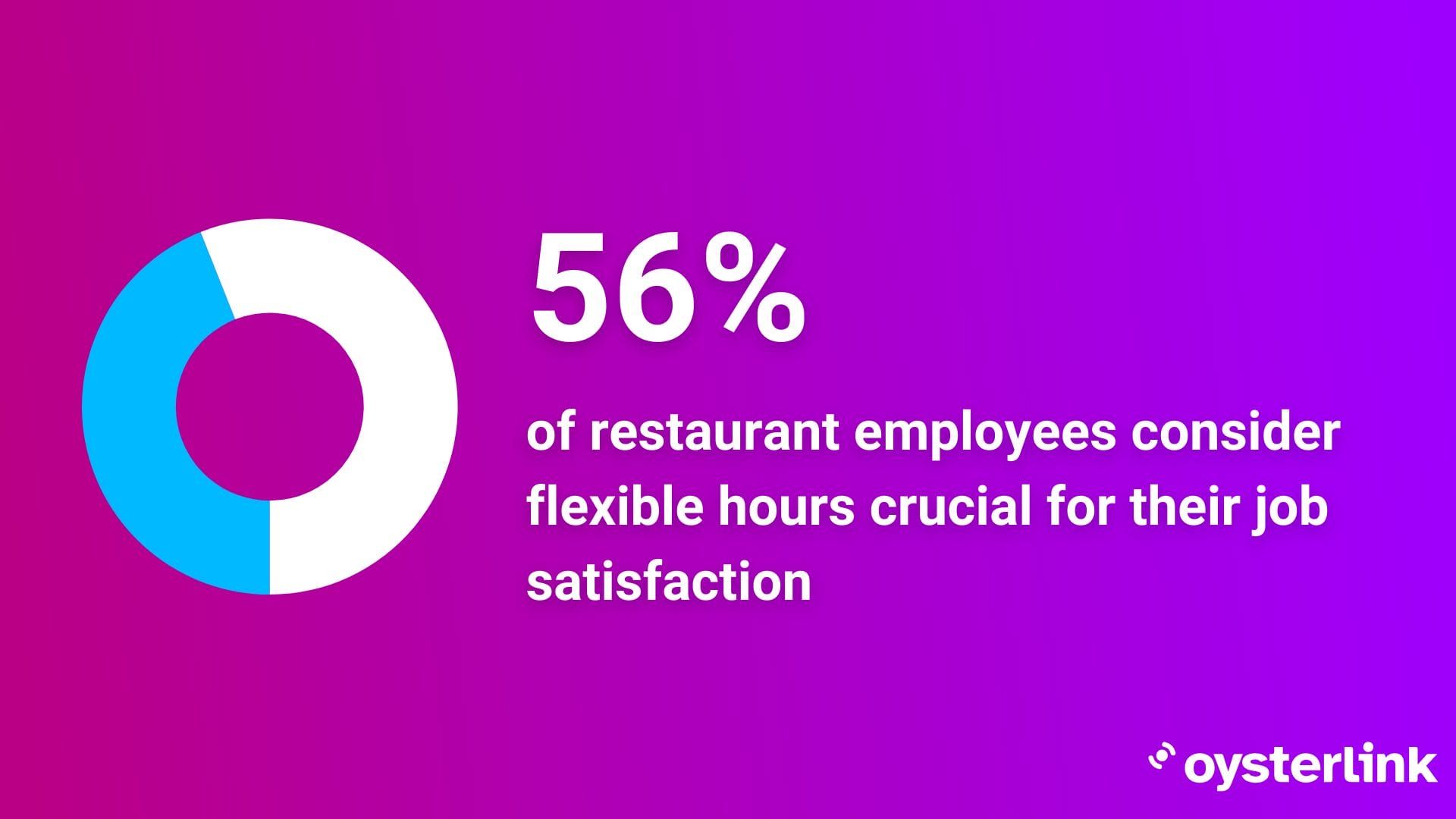
Legal requirements and compliance frameworks
Compliance forms the backbone of your restaurant's HR operations.
The Fair Labor Standards Act (FLSA) mandates specific requirements for tipped and non-tipped employees.
You must ensure your policies address Equal Employment Opportunity (EEO) guidelines to maintain a respectful environment.
Setting up HR technology systems
Implementing the right HR technology can streamline your operations significantly.
A dedicated restaurant labor compliance software helps you avoid costly penalties through features like overtime alerts and break management.
Specifically, when selecting HR technology, consider integration capabilities with your existing systems.
Your HR software should seamlessly connect with your point-of-sale (POS) system to align labor costs with sales projections.
This integration enables better scheduling decisions and more accurate financial planning for your restaurant.
Essential HR Policies Every Restaurant Needs
Creating effective HR policies requires a systematic approach to protect both your restaurant and its employees.
Recent studies show that restaurants with comprehensive HR policies experience 47% higher employee satisfaction rates.
Core policy categories and documentation
Your restaurant's HR policies must cover essential areas that protect and guide your workforce.
Here are the fundamental policies you need:
- Anti-discrimination and harassment protocols
- Safety and sanitation guidelines
- Employee benefits and compensation structures
- Attendance and scheduling procedures
- Social media and communication guidelines
Essentially, 68% of restaurants now provide these policies through employee handbooks, making it easier for staff to understand expectations.
Digital-first policy management
Modern restaurants are moving away from paper-based systems.
That's because the digital HR management helps:
- Automate compliance tracking
- Streamline policy updates
- Ensure consistent policy implementation
- Maintain accurate documentation
Implementing HR technology has been shown to reduce compliance risks and improve policy management efficiency.
Policy communication strategies
Did you know that 22% of diners are more likely to visit restaurants with a strong social media presence?
This highlights how important clear communication is — both with your customers and your team.
A solid policy implementation plan makes all the difference.
By focusing on transparent policies, you’re building a positive and supportive work environment.
Well-crafted HR policies for a restaurant help lower turnover, laying the foundation for long-term success.
Sarah Diehl, founder of Empowered Hospitality, shared insights on staff turnover and the rehiring cycle driven by better pay elsewhere:
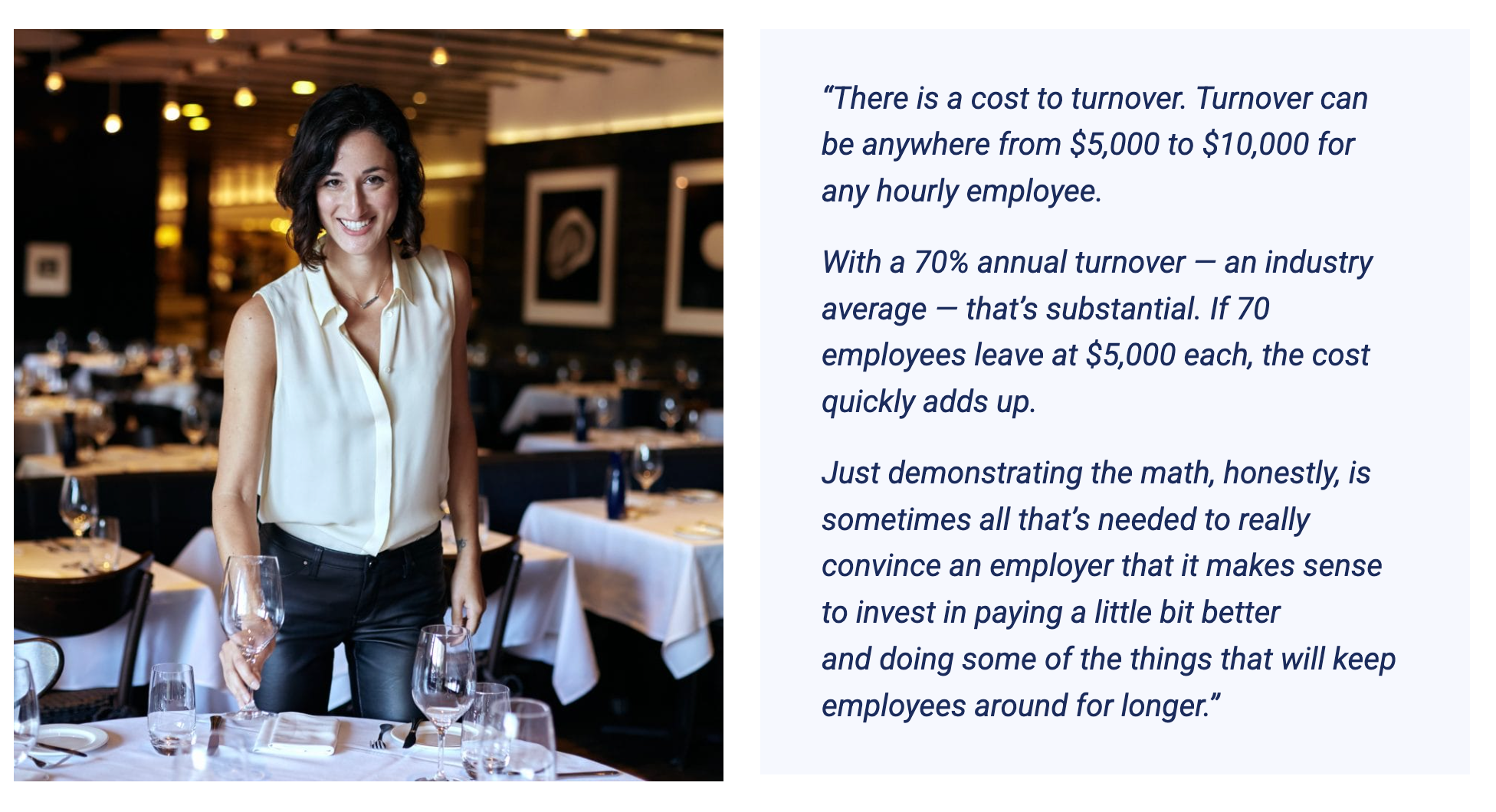
Enhance Your Value Proposition Using Restaurant HR Policies
To build a strong restaurant team, you need more than just competitive wages.
Recent data shows that 67% of restaurant employees prefer performance-based bonuses as recognition for excellence.
Benefits and compensation structures
Your compensation strategy should include both immediate and long-term benefits.
For example, Restaurant Managers earn between $42,990 to $101,240 annually, based on experience and location.
Offering competitive pay can help your business stand out and improve staff retention.
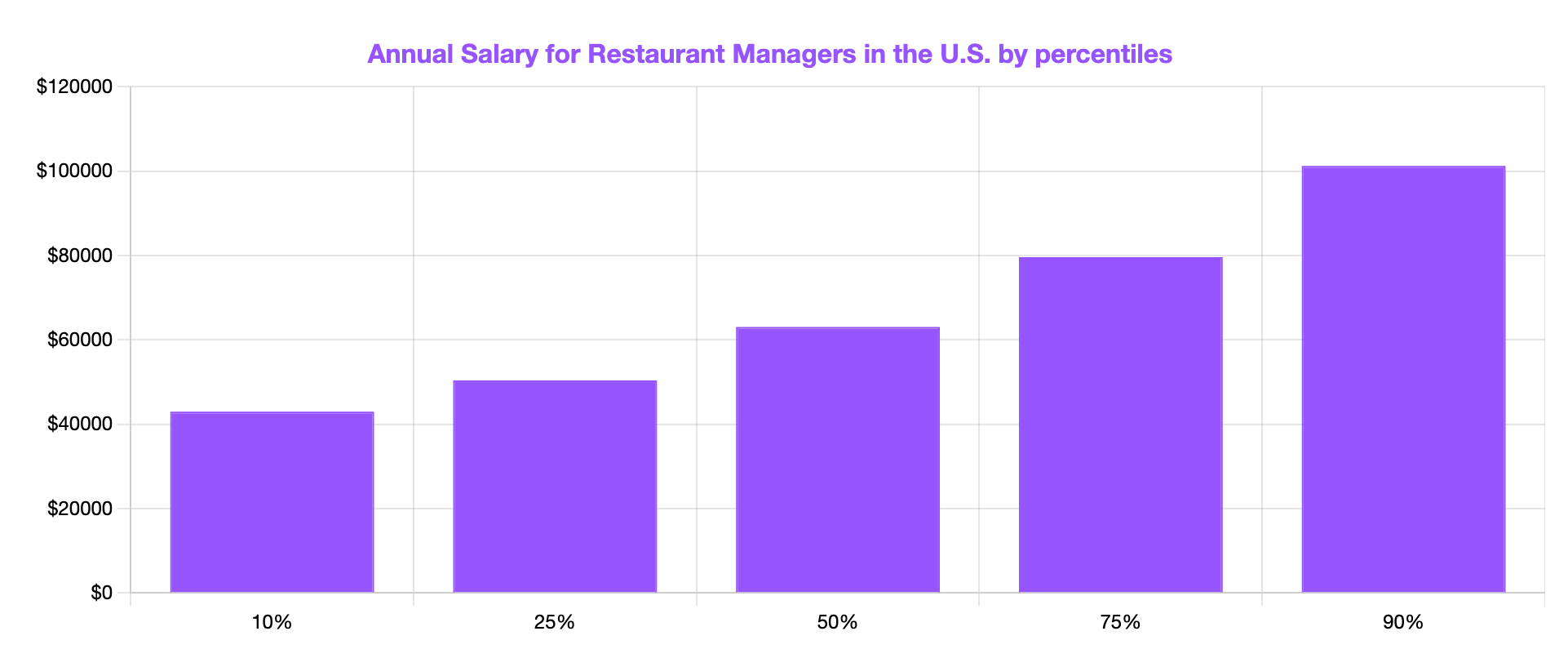
[Source: Bureau of Labor Statistics]
If your employee is in the 90th percentile, it means they earn more than 90% of all Restaurant Managers in the U.S.
However, if they are in the 10th percentile, their earnings are lower than 90% of their peers.
To build an attractive and comprehensive package that aligns with market position, consider the following:
- For high performers (90th percentile and above): Offer bonuses, leadership development programs, or equity options.
- For mid-level performers (50th–80th percentile): Focus on career advancement opportunities and performance-based raises.
- For lower percentile employees (Below 50th percentile): Create personalized improvement plans.
Career development programs
Studies indicate that restaurants offering comprehensive training programs experience 22% higher productivity rates.
Create clear career paths through:
Work-life balance initiatives
Work-life balance has become a primary concern in the restaurant industry.
Research shows that flexible scheduling options and predictable work hours significantly reduce turnover rates.
Your work-life balance strategy should include:
- Flexible shift scheduling
- Paid time off policies
- Mental health support resources
- Regular breaks and meal periods
- Clear communication channels
Generally, restaurants that prioritize employee well-being report higher productivity levels and experience substantially lower turnover rates.
Measuring the Impact of Your Restaurant HR Policies
Tracking the effectiveness of your HR policies serves as a cornerstone of your restaurant's success.
A strong, intentional HR strategy does more than attract top talent — it retains them, fuels productivity and cultivates a thriving workplace culture.
Key performance indicators (KPIs)
Your restaurant's HR metrics should align with business objectives.
Create a solid tracking system that includes:
Employee feedback systems
Creating strong feedback channels is one of the best ways to boost employee engagement, retention and overall performance.
In fact, Gallup found that employees who regularly receive feedback are 3.5x more likely to stay engaged at work.
To build a workplace where employees feel heard and valued, try:
- Anonymous digital surveys: Harvard Business Review found that anonymous feedback leads to 30% more useful insights
- Regular one-on-one meetings
- Asking for feedback right after a shift helps catch small issues before they grow
- Gathering teams to share ideas
By building these feedback loops, you create a positive, open culture where employees feel supported — and that’s a win for everyone.
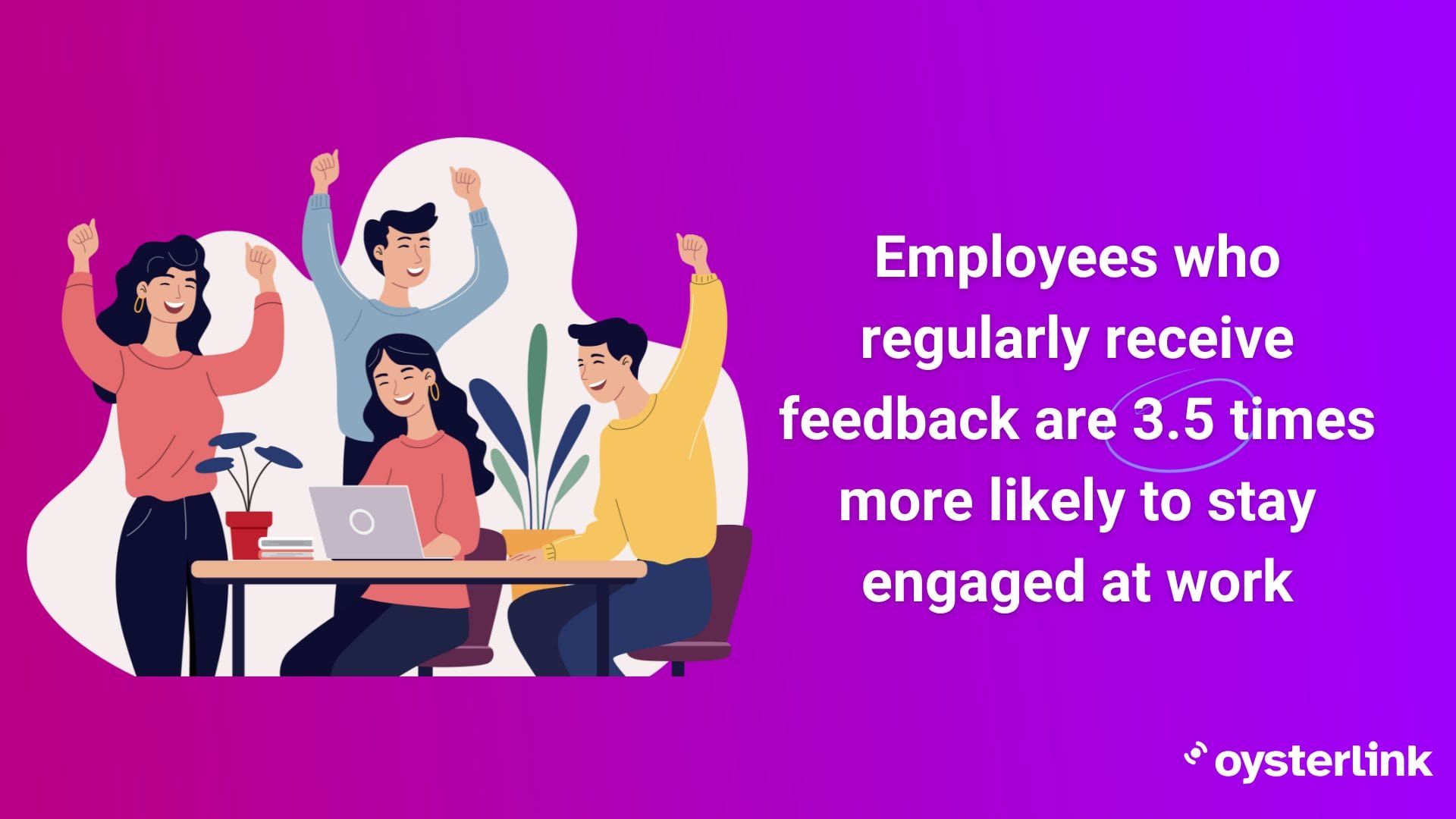
Continuous improvement frameworks
Make sure you develop a structured approach to ongoing improvement.
Research indicates that restaurants with continuous improvement programs see an increase in operational efficiency.
Your framework should include performance improvement teams (PIT) that meet every four to six weeks.
These teams analyze data, identify opportunities and implement solutions across your restaurant operations.
As a result of implementing these measurement systems, you'll notice enhanced employee satisfaction and reduced turnover.
Building a Successful Future with Strong Restaurant HR Policies
Building solid HR policies for a restaurant is about creating a great place to work and keeping your team happy.
When your employees feel supported and valued, they stick around longer, work better and help your business grow.
By focusing on clear communication, fair pay, regular feedback and employee well-being, you can:
- lower turnover
- improve efficiency, and
- make your restaurant a place where people want to stay.
Plus, happy employees lead to happy customers - and that’s good for business.
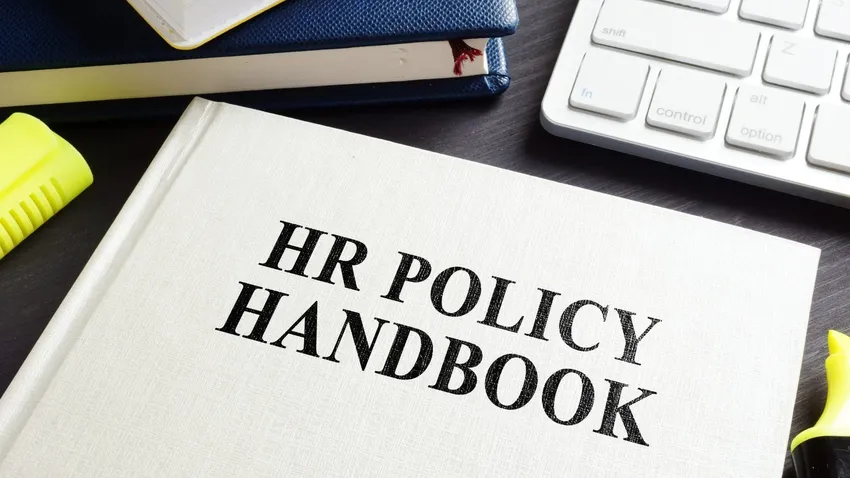








Loading comments...